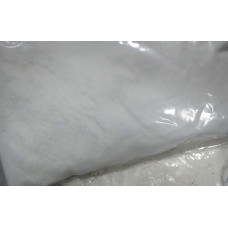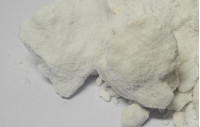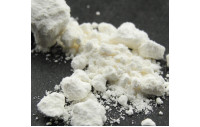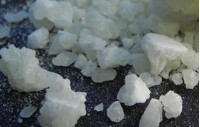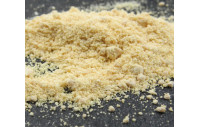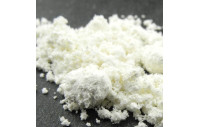Buy MDMA for sale online from USA vendor
Discount program: 5% OFF for the second order, 7% OFF for the third order.
Shop with us securely! We offer re-shipment guarantees.
We always provide new, legal products of impeccable quality.
Please make sure that the product is legal in your country and not under any restrictions before ordering.
We do not sell pharmaceutical products or controlled substances.
Table of Contents
- Online market
- What is MDMA (Ecstasy)
- The History
- Effects
- Dosage
- Legal Status
- Pharmacology
- Chemistry
- The MDMA Trip
- Conclusion
- FAQs
- Where to Buy MDMA (Ecstasy) for sale?
Online market
If you're looking for a comprehensive guide on how to purchase MDMA, commonly known as Ecstasy, online using cryptocurrency, you've come to the right place. Our guide simplifies the process of buying MDMA through secure online transactions, ensuring your anonymity and safety. We'll walk you through the steps of finding reputable vendors in the digital marketplace, making it easier than ever to buy MDMA online with confidence. Whether you're a newcomer or an experienced buyer, our guide offers valuable insights and precautions to guarantee a smooth and secure purchase. Bid farewell to the hassle of traditional payment methods, and delve into the world of online MDMA sales via cryptocurrency. Enjoy discreet, seamless transactions while connecting with legitimate vendors. Embark on your journey into the realm of online MDMA purchases with cryptocurrency today.
MDMA (Ecstasy)
MDMA, or 3,4-methylenedioxymethamphetamine, is a synthetic psychoactive substance with stimulant and empathogenic properties. It is most commonly known by its street names, such as ecstasy, E, or Molly. MDMA typically comes in tablets, capsules, or powder and is often associated with recreational use in party and club scenes. However, MDMA has a more complex history and potential therapeutic applications.
The History
MDMA was first synthesized in 1912 by a German pharmaceutical company, Merck. However, its psychoactive properties remained relatively unknown for decades. It wasn't until the 1970s that MDMA began to gain popularity as a recreational drug in the United States. Initially, it was used in therapeutic settings for its empathogenic effects, intended to facilitate communication and therapy.
During the 1980s, MDMA became illegal in many countries due to concerns about its safety and potential for abuse. Despite this, it continued to be widely used as a recreational drug. In recent years, there has been a resurgence of interest in MDMA as a potential therapeutic tool, particularly in treating post-traumatic stress disorder (PTSD).
Effects
MDMA has various effects on the human body and mind, which can vary depending on the dose, individual differences, and the environment in which it is consumed. Some common effects of MDMA include:
- Euphoria: MDMA can induce a sense of intense happiness and well-being.
- Increased Sociability: Users often become more open and communicative, intensely wanting to connect with others.
- Enhanced Sensory Perception: MDMA can heighten sensory experiences, including touch, taste, and music appreciation.
- Empathy: Many users report increased empathy and emotional closeness to others.
- Alertness: MDMA is a stimulant that can increase wakefulness and energy.
- Jaw Clenching and Teeth Grinding: One common physical side effect of MDMA is jaw clenching and teeth grinding.
- Dehydration: MDMA can lead to increased body temperature and sweating, which may result in dehydration if not properly managed.
- Nausea: Some users experience nausea or vomiting, particularly during the come-up phase.
- Insomnia: Some individuals may have difficulty falling asleep after the effects wear off.
Dosage
The dosage of MDMA varies widely among individuals, and its effects can be influenced by factors such as body weight, tolerance, and the presence of other substances. A typical recreational dose of MDMA is around 100 to 125 milligrams, although some users may take more.
It is crucial to emphasize the importance of responsible drug use and harm reduction. Too much MDMA can lead to serious health risks, including overheating, dehydration, serotonin syndrome, and even death. It is advisable never to take a substance of unknown purity or origin, as pollutants and contaminants can be dangerous.
If you are considering using MDMA for any reason, it is essential to do thorough research, start with a low dose, and use a test kit to verify the substance's purity.
Legal Status
The legal status of MDMA varies from country to country. In many nations, including the United States and much of Europe, MDMA is classified as a Schedule I controlled substance, meaning it is illegal to manufacture, possess, or distribute without medical or scientific research authorization.
However, as mentioned earlier, there has been a growing interest in the therapeutic potential of MDMA. In the United States, the Food and Drug Administration (FDA) has designated MDMA-assisted psychotherapy as a "Breakthrough Therapy" for treating PTSD, allowing clinical trials to proceed. This demonstrates a shift in the perception of MDMA from a solely recreational drug to a potential therapeutic tool under controlled and regulated conditions.
It's crucial to stay informed about the legal status of MDMA in your region and adhere to local laws and regulations.
Pharmacology
MDMA primarily affects the brain by altering several neurotransmitters' release, reuptake, and action, including serotonin, dopamine, and norepinephrine. Serotonin, in particular, plays a significant role in regulating mood, emotion, and social behavior.
The release of large amounts of serotonin is believed to be responsible for the mood-enhancing and empathogenic effects of MDMA. However, the excessive release of serotonin can also deplete the brain's serotonin stores, leading to the "mid-week blues" or "Tuesday blues," a temporary feeling of depression or sadness that some users experience in the days following MDMA use.
Chemistry
MDMA belongs to a class of drugs known as entactogens, which share structural similarities with amphetamines and hallucinogens. Its chemical structure consists of a benzene ring, a methylenedioxy ring, and an amine group, contributing to its psychoactive properties.
The synthesis of MDMA involves a series of chemical reactions, which can be quite complex and potentially dangerous when performed by individuals without proper training and equipment. This is another reason why obtaining MDMA from illicit sources is risky, as the purity and safety of the substance cannot be guaranteed.
The MDMA Trip
The experience of an MDMA trip often referred to as "rolling," typically consists of several phases:
- Come-up: After taking MDMA, users may feel the effects within 30 minutes to an hour. This phase is often characterized by increased energy, enhanced mood, and sensory perception.
- Peak: The peak of the trip occurs a few hours after ingestion, during which users may experience the most intense effects, including euphoria, enhanced empathy, and heightened sensory perception.
- Plateau: After the peak, the effects tend to level off and remain relatively stable for a period of time.
- Come-down: As the effects of MDMA begin to wear off, users may experience a gradual decrease in mood enhancement, sometimes leading to feelings of sadness or emotional vulnerability.
- Afterglow: Some individuals report a positive afterglow effect, characterized by improved mood and feelings of contentment in the days following MDMA use.
It is important to note that the MDMA experience can vary widely between individuals, and not all users have the same reactions or sensations.
Conclusion
MDMA is a psychoactive substance with a complex history, a range of effects, and a significant impact on brain chemistry. While it has been widely used for recreational purposes, it is crucial to be aware of the potential risks and legal consequences associated with its use. The illegal production and distribution of MDMA are fraught with dangers, including pollutants and contaminants that can pose serious health risks.
Furthermore, the resurgence of interest in MDMA for therapeutic purposes underscores the need for responsible research and controlled use. Under the right conditions.
FAQs
1. What exactly is Ecstasy?
MDMA stands for 3,4-methylenedioxymethamphetamine, commonly known as ecstasy. It's a synthetic drug with stimulant and empathogenic effects.
2. How is MDMA typically consumed?
MDMA is usually taken orally in the form of a tablet or capsule. It can also be crushed and snorted, or occasionally injected.
3. What are the effects of MDMA?
MDMA can induce feelings of pleasure, increased energy, emotional openness, and enhanced sensory perception. It may also lead to increased sociability and empathy.
4. Are there any negative side effects associated with MDMA use?
Yes, MDMA can have adverse effects, including dehydration, hyperthermia, anxiety, depression, and potential long-term cognitive impairment. In rare cases, it can be life-threatening.
5. Is MDMA addictive?
While MDMA is not considered physically addictive, it can be psychologically habit-forming. Some users may develop a pattern of frequent use.
6. What are the risks of using MDMA?
The risks include dehydration, overheating, serotonin syndrome, neurotoxicity, and the potential for adulterated or impure substances. It's also illegal in many countries.
7. How long do the effects of MDMA last?
The effects of MDMA typically last for 3-6 hours, but residual effects or "afterglow" can persist for several more hours.
8. Can MDMA be used safely?
Like any drug, using MDMA carries risks. To minimize harm, users should stay hydrated, avoid overheating, test their substances, and use in moderation. It is essential to be aware of the setting and your overall health.
9. Can you mix MDMA with other substances?
Mixing MDMA with other drugs, especially alcohol or stimulants, can be dangerous. It increases the risk of harmful interactions and adverse effects.
10. Is there a safe dosage for MDMA?
The recommended safe dose of MDMA is typically around 75-125 mg for a single use. However, individual tolerance and reactions can vary, and less is often safer.
11. How long should I wait between MDMA uses?
Experts recommend a minimum of 1-3 months between uses to allow your body to recover and reduce the risk of developing tolerance or adverse effects.
12. Is MDMA legal?
MDMA is illegal in many countries, including the United States. It's classified as a Schedule I controlled substance due to its potential for abuse and lack of accepted medical use.
13. Can MDMA be used for therapeutic purposes?
Some research suggests that MDMA-assisted therapy may be effective for treating certain mental health conditions, such as PTSD. However, this is still an emerging field and not widely available.
14. How can I test the purity of MDMA?
You can use drug testing kits that are available online or at some harm reduction organizations to test the purity and presence of other substances in MDMA.
15. Can MDMA be detected in drug tests?
MDMA can be detected in standard drug tests, including urine and blood tests, for a few days after use. It may be detectable for a longer period in heavy or frequent users.
16. Are there any long-term health effects of using MDMA?
Chronic or heavy use of MDMA has been associated with potential long-term cognitive and mood disturbances. However, more research is needed to fully understand these effects.
17. Can MDMA be used safely at festivals or raves?
It is essential to be cautious when using MDMA in such settings. Stay hydrated, take breaks, and avoid excessive physical activity to reduce the risk of overheating and dehydration.
18. What should I do in case of an MDMA overdose?
If you suspect an overdose, seek immediate medical attention. Signs of overdose may include severe agitation, confusion, seizures, or loss of consciousness.
19. Can MDMA be used while on medication?
Mixing MDMA with certain medications, especially those that affect serotonin levels, can be dangerous. It's essential to consult a healthcare professional if you are taking any medications.
20. Is there any ongoing research on MDMA?
Yes, research on MDMA's potential therapeutic uses and its risks continues, especially in the context of treating mental health conditions like PTSD.
Remember that MDMA use carries risks, and it's essential to prioritize your health and safety. If you have specific concerns or questions, consult with a healthcare professional or a harm reduction organization for guidance.
21. Where to get Ecstasy (MDMA)?
You can buy MDMA for sale online from the best supplier at Flakkaforsale.online
To prepare the content, the following materials were used:
- FDA Substance Registration System
- Hazardous Substances Data Bank. National Library of Medicine. 28 August 2008. Retrieved 22 August 2014. 3,4-Methylenedioxymethamphetamine
- Liver transplant modulates gut microbial dysbiosis and cognitive function in cirrhosis. PDF . By HoChong Gilles, Scott C Matherly, Mohammed S Siddiqui, Puneet Puri...
- Differential impact of hyponatremia and hepatic encephalopathy on health-related quality of life and brain metabolite abnormalities in cirrhosis . By Jasmohan Bajaj
- An overview of alcohol and other drug issues
- Medicating the mind: a Kantian analysis of overprescribing psychoactive drugs B A Manninen
- The pharmacological basis of opioids Carla Ghelardini, Lorenzo Di Cesare Mannelli and Enrica Bianchi
- Ask Dr. Shulgin Online ARCHIVE: June 3, 2004
- Inhibition of plasma membrane monoamine transporters by β-ketoamphetamines. Nicholas V Cozzi, Michael KSievert, Alexander T Shulgin, Peyton JacobIII, Arnold Eruoho
- Schedules of Controlled Substances: Placement of Methylone Into Schedule I
- Bioanalysis of new designer drugs. Wohlfarth A, Weinmann W.
- New Psychoactive Substances (including synthetic cannabinoids, mephedrone, and more)
- Future Synthetic Drugs of Abuse. Donald A. Cooper. Drug Enforcement Administration McLean, Virginia
- Designer drugs: a medicinal chemistry perspective. F. Ivy Carroll Anita H. Lewin S. Wayne Mascarella Herbert H. Seltzman P. Anantha Reddy
- Synthetic cannabinoids in Europe
- Pharmacological Effects of MDMA in Man. By Enno Freye
- Drug Use in Relation to Outcome of Mammography Screening. von Euler-Chelpin M, Wu W, Vejborg and Lynge E
- DEA Drug Scheduling
- Electrophysiological Effects of Trace Amines on Mesencephalic Dopaminergic Neurons.Ada Ledonne, Nicola Berretta, Alessandro Davoli, Giada Ricciardo Rizzo, Giorgio Bernardi and Nicola Biagio Mercuri
- Electrophysiological evidence for a reciprocal interaction between amphetamine and cocaine-related drugs on rat midbrain dopaminergic neurons.Scarponi M, Bernardi G, Mercuri NB.
- Overdose of Drugs for Attention-Deficit Hyperactivity Disorder: Clinical Presentation, Mechanisms of Toxicity, and Management. Henry A. Spiller, author Hannah L. Hays Alfred Aleguas.
- Dose-dependent effectiveness of wheel running to attenuate cocaine-seeking: impact of sex and estrous cycle in rats. Peterson AB, Hivick DP, Lynch WJ.r.
- FDA Drug Safety Communication: Safety Review Update of Medications used to treat Attention-Deficit/Hyperactivity Disorder (ADHD) in children and young adults
- ADHD Medications and Risk of Serious Cardiovascular Events in Young and Middle-aged Adults
- Controlled Substances Act
- The Art of Drug Synthesis (Wiley Series on Drug Synthesis)
- Cannabis: domestic cultivation widespread
- A review of the influence of functional group modifications to the core scaffold of synthetic cathinones on drug pharmacokinetics
1kg $1590
1kg $1690
1kg $1590
1kg $1590
100g $390
1kg $1590
1kg $1690
100g $490
100mg $840
1kg $1690
500g $1700
1kg $1690

